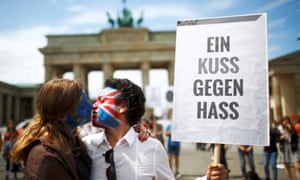
Custom Search
BRITAIN HAS VOTED TO LEAVE THE EU -- WHAT HAPPENS NEXT?
5-29-17
Can the EU force the UK’s hand, what reception will Cameron face in Brussels this week - and what sort of settlement will ultimately emerge?

